Kinhtedothi - Questioning the Governor of the State Bank, National Assembly deputies asked about the tasks and solutions to stabilize and manage the gold market in the present and future.
On the morning of November 11, continuing the 8th Session, the National Assembly conducted questions and answers on the first group of issues in the banking sector.
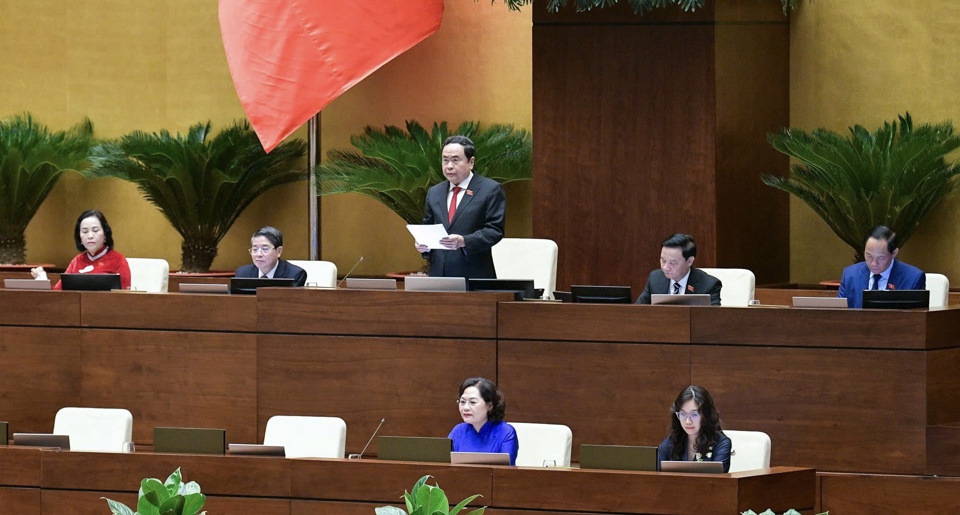
Speaking at the opening of the question and answer session, National Assembly Chairman Tran Thanh Man said that according to the Program of the 8th Session of the 15th National Assembly, starting this morning (November 11), the National Assembly will organize a question and answer session, lasting for 2 days and will be broadcast live on radio and television for people and voters nationwide to follow.
The National Assembly Chairman emphasized that the questioning activities at this session continue to be carried out in accordance with the provisions of the Law on Supervision Activities of the National Assembly and People's Councils, making questioning activities increasingly become a highlight of each session of the National Assembly. Based on the synthesis of issues that National Assembly deputies, voters and the People are most concerned about at this session, the 3 groups of issues that the National Assembly will question and answer are under the responsibility of 3 Ministers and Heads of sectors, including: Governor of the State Bank; Minister of Information and Communications; Minister of Health.
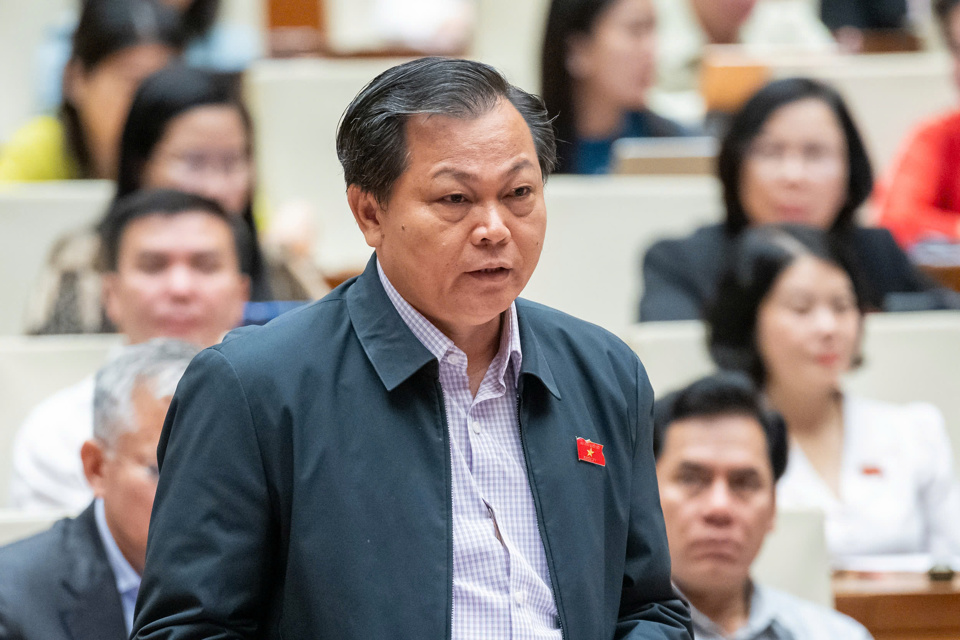
Propose appropriate policies to stabilize the gold market
Questioning the Governor of the State Bank, National Assembly delegate Luu Van Duc (National Assembly delegation of Dak Lak province) said that on April 14, 2024, the Government Office issued Notice No. 160 on the Prime Minister's conclusion at the meeting to discuss solutions for managing the gold market in the coming time. In which, the State Bank and relevant ministries and agencies were assigned to urgently, seriously, fully, effectively and promptly implement tasks and solutions to stabilize and manage the gold market.
Delegate Luu Van Duc asked the Governor of the Bank to tell him how the above request has been implemented in the past and what impact it has had on gold prices and the gold market in the present and future?
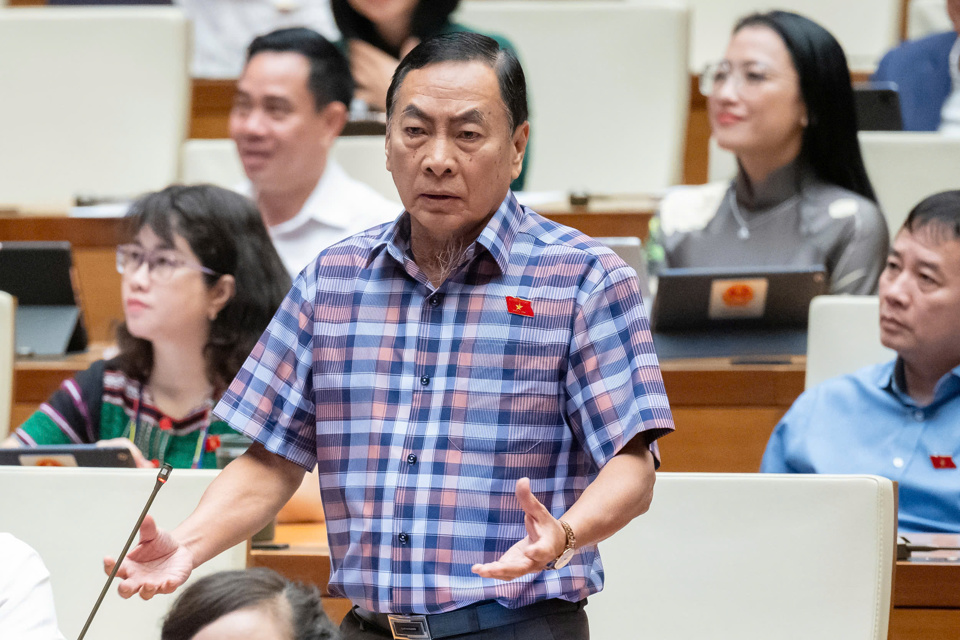
Meanwhile, National Assembly delegate Pham Van Hoa (National Assembly delegation of Dong Thap province) said that the recent sale of gold bars by the State Bank to stabilize gold prices has been very well received and supported by the people. However, banks only sell, not buy. If people want to sell gold due to cash needs, where can they sell it? If banks do not buy, other gold shops will not buy either. On the other hand, banks only sell gold in Hanoi and Ho Chi Minh City, why not sell it in other provinces and cities across the country?
Speaking at the debate on the State Bank's purchase/sale of gold bars, delegate Pham Van Hoa said that the State Bank sells gold bars but does not buy them back from the market, forcing people to sell gold on the black market. The delegate suggested that the Bank consider buying back gold bars from people to create favorable conditions for them when they need to sell gold.
Regarding the issue of capital mobilization from remittances, delegate Pham Van Hoa said that according to data from 2013 - 2023, the amount of remittances to Vietnam is very large, up to 26 billion USD. However, banks do not actively mobilize this capital source, but only pay 0% interest. Meanwhile, the State borrows ODA at higher interest rates. The delegate suggested that banks should mobilize capital from remittances at lower interest rates than foreign loans, to motivate people to send money back to Vietnam.
In addition, National Assembly delegate Pham Van Hoa said that currently, the amount of remittances to our country is very large, but people deposit them in banks with “0 VND” interest rate, leaving them at home is potentially unsafe. Meanwhile, banks borrow foreign capital in foreign currency and have to pay interest, so why not borrow from the people to benefit the people, even if the interest rate is lower than borrowing from foreign countries?
Responding to delegate Luu Van Duc about stabilizing gold prices and the gold market, State Bank Governor Nguyen Thi Hong stated that the fluctuations in Vietnam's gold market are also common developments in countries around the world. From 2014 to 2019, the Vietnamese gold market was relatively stable and people's demand for gold decreased. However, from 2021, world gold prices increased, accordingly, domestic gold prices also increased.
However, from 2021 to June 2024, the State Bank has not intervened. From June 2024, the world gold price reached a peak, the gap between world and domestic gold prices increased. Therefore, the Government and the State Bank have directed strongly. Based on current laws, the State Bank organized an auction. In the context of the gold price reaching a peak and the market's expectations being very high, the State Bank considered 9 auctions (this was a quite effective solution in 2013).
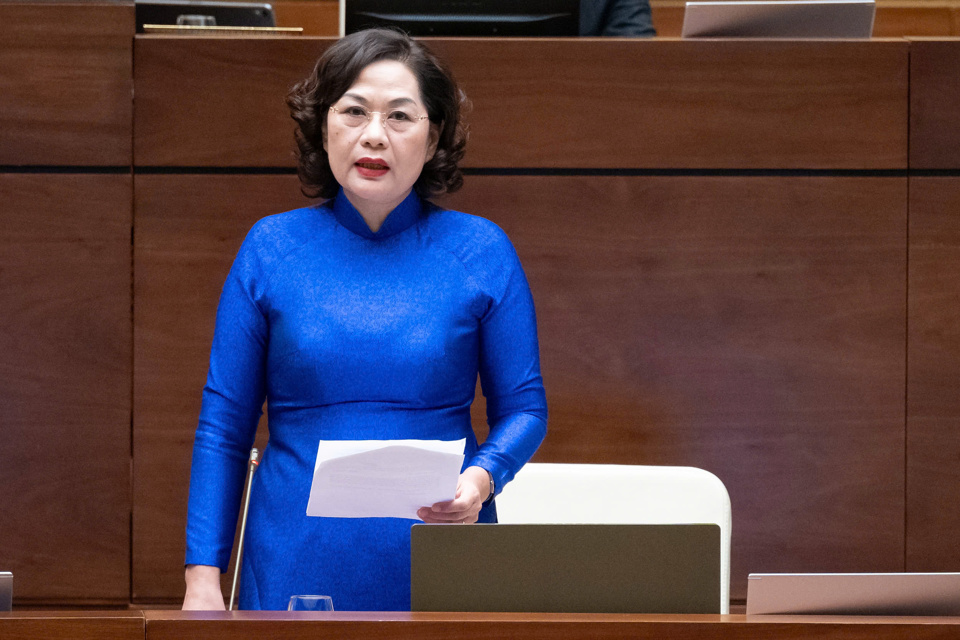
In order to quickly narrow the gap between domestic and international gold prices at a high level under the Government's drastic direction, the State Bank has switched to selling SJC gold directly through 4 State Commercial Banks. Therefore, the gap between domestic and international gold prices has decreased from about 15-18 million VND/tael to only about 3-4 million VND/tael.
Pointing out that gold prices continue to be complicated and unpredictable, Governor Nguyen Thi Hong said that our country does not produce gold, so intervention depends entirely on international gold imports. Therefore, the State Bank will closely monitor market developments to come up with appropriate policies to stabilize the gold market.
There is a policy to support customers borrowing capital in the agricultural and rural sectors.
Questioning the Governor of the State Bank Nguyen Thi Hong, National Assembly delegate Ma Thi Thuy (National Assembly delegation of Tuyen Quang province) affirmed that the recent storm No. 3 seriously affected all aspects of social life, causing great damage to people and property, and many crops and livestock were severely damaged.
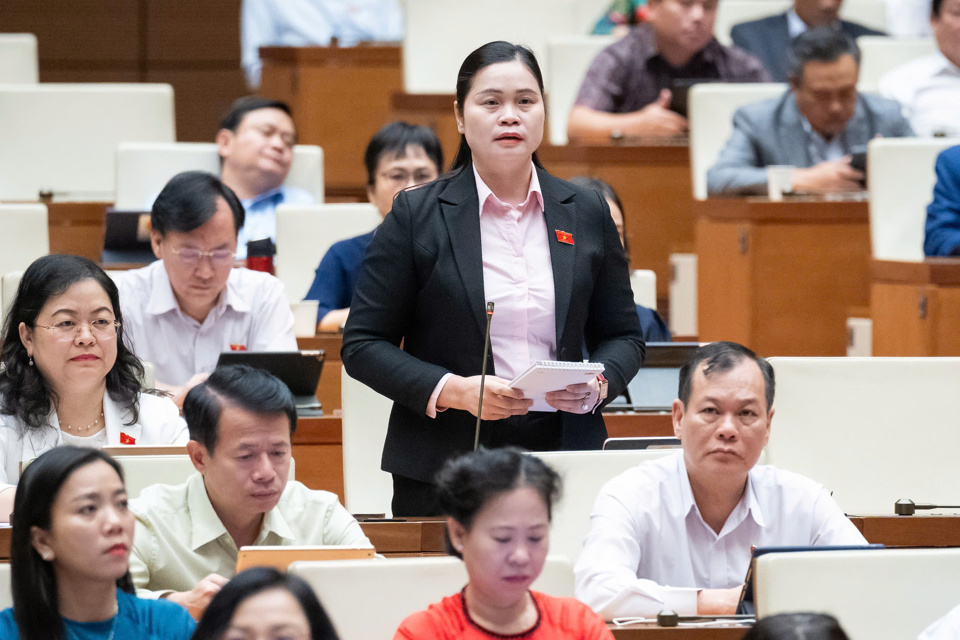
According to the Government's report, the total economic damage caused by storm No. 3 is estimated at over 81,000 billion VND, of which damage in the fields of agricultural production, cultivation, livestock, aquaculture, and forestry is nearly 31,000 billion VND, equal to 38% of economic damage.
Therefore, delegate Ma Thi Thuy asked the Governor of the State Bank to inform her about what support policies the banking sector has for customers borrowing capital in the agricultural and rural sectors affected by storm No. 3?
Responding to delegate Ma Thi Thuy, Governor of the State Bank Nguyen Thi Hong said that after storm No. 3 occurred and had serious impacts on businesses and people in 26 provinces and cities, the State Bank sent leaders of the State Bank to directly survey Hai Phong and Quang Ninh provinces, the two provinces strongly affected by storm No. 3, and determined that the outstanding debt of these two provinces affected by storm No. 3 was about 12,000 billion VND.
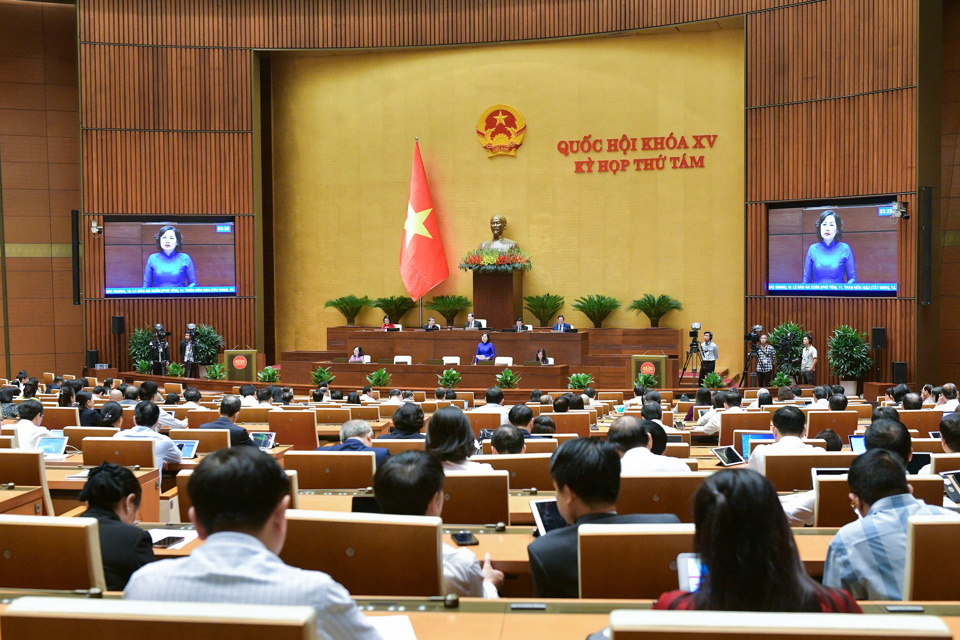
The State Bank has directed credit institutions to focus on and review customers who have borrowed capital from their institutions to determine the extent of damage to the outstanding loans that customers and people have borrowed from banks. Accordingly, the outstanding credit balance of individual customers is about 190,000 billion VND. On that basis, the State Bank has directed credit institutions to focus on implementing solutions to remove difficulties for businesses and people such as restructuring debt repayment terms and maintaining debt groups according to current regulations. The State Bank also directed credit institutions to consider reducing interest rates for businesses and people affected by storm No. 3.
“In addition, each credit institution also considers and balances its capital sources to launch credit packages. To date, 35 credit institutions have announced a total credit package value of VND405,000 billion to continue providing new loans to affected businesses and people as well as more preferential lending interest rates,” Governor Nguyen Thi Hong informed.
Regarding the first group of issues in the banking sector, the National Assembly focused on questioning: the management of monetary policy to control inflation in the context of the volatile world economic situation; State management of the gold market and foreign exchange market; support for loans and exemption and reduction of interest rates for people and businesses to restore production and business after the Covid-19 pandemic and natural disasters.
In this group of issues, the main responsibility for answering belongs to the Governor of the State Bank of Vietnam Nguyen Thi Hong. Deputy Prime Minister, Minister of Finance Ho Duc Phoc and the Ministers of the Ministries of Planning & Investment, Industry and Trade, Agriculture and Rural Development also participated in answering questions and explaining related issues.
Source: https://kinhtedothi.vn/dai-bieu-quoc-hoi-giai-phap-nao-de-binh-on-quan-ly-thi-truong-vang.html








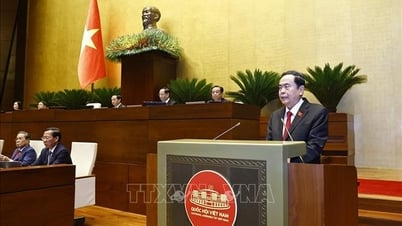





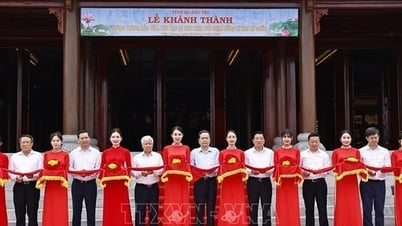

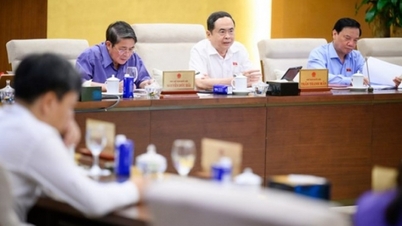
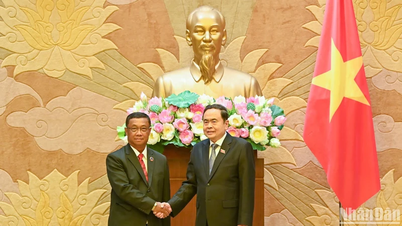

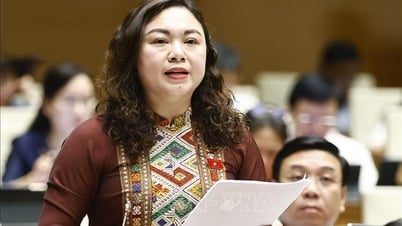















![[Photo] General Secretary To Lam begins official visit to Russia and attends the 80th Anniversary of Victory over Fascism](https://vphoto.vietnam.vn/thumb/1200x675/vietnam/resource/IMAGE/2025/5/8/5d2566d7f67d4a1e9b88bc677831ec9d)

![[Photo] Prime Minister Pham Minh Chinh meets with the Policy Advisory Council on Private Economic Development](https://vphoto.vietnam.vn/thumb/1200x675/vietnam/resource/IMAGE/2025/5/8/387da60b85cc489ab2aed8442fc3b14a)



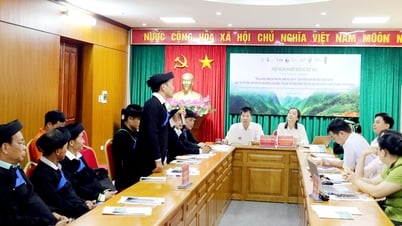



































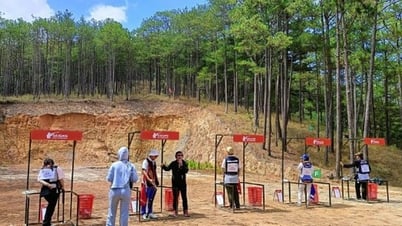





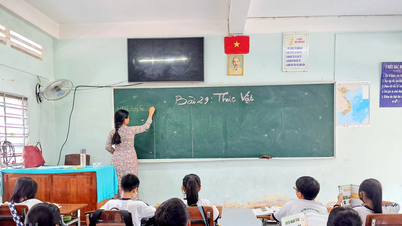


















Comment (0)